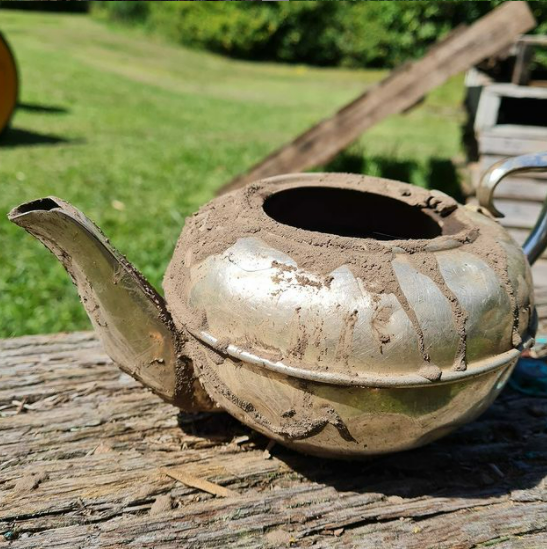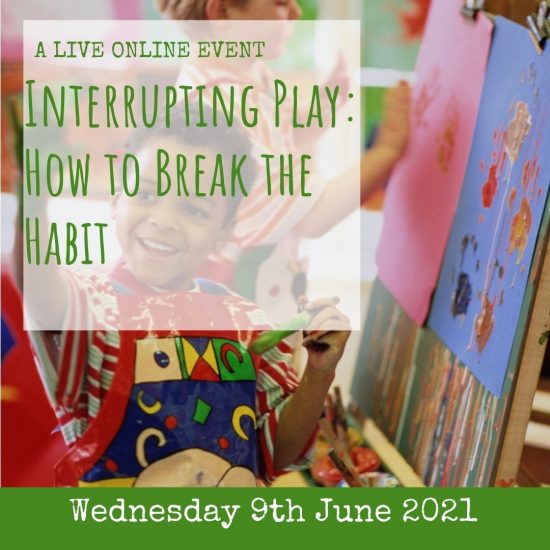What do "uninterrupted blocks of time for play" look like, and why are they important?
From the side of the mud pit, where I sit watching a group of children digging a hole so deep that they can fit in it, I glance at the time. It has been two hours. Sure, they've taken breaks to dash to the bathroom, or grab a quick drink - there might have even been a quick snack break. But this group of children have been digging and playing here in this mud pit for two hours. Two joyful hours of dirt and discovery. Two hours without being interrupted for group time, or to transition to something else. Two hours to deeply immerse themselves in their play.

When I was working as a nominated supervisor, I loved nothing more than seeing children fully immersed in their play. I loved knowing that the educators on our team were respectful of their play, that they valued it enough to give it the time that it needed.
If you were to walk into almost any early childhood service here in Australia, I believe that they would tell you that they value play, that they are a play-based program. And yet, when I walk into services although I do in fact see play, I also see a lot of adult interruption of that play.
We interrupt play with meal times.
We interrupt play with questions.
We interrupt play with routines.
We interrupt play with group times.
We interrupt play with transitions.
We interrupt play with commentary.
We interrupt play with commands.
Do we mean to interrupt? Well, sometimes our interruptions are well-intentioned (can you please find your hat Sarah?), while other interruptions are simply unnecessary and are more connected to our adult agenda than to the actual needs and rights of the child.
In her book Balanced and Barefoot, Angela Hanscom discusses the notion of it taking approximately 45 minutes for children to settle into play. There are all sorts of decisions to be made:
- Who am I going to play with?
- Where am I going to play?
- What am I going to play?
- What materials or resources do I need?
If this is true, what happens when our "block of playtime" is only an hour long? Essentially, children will have around 15 minutes to actually become absorbed in their play.
Do you remember going to play at a friend's house as a child? I fondly remember afternoons spent with one of my very best friends after school. We would get to her house and negotiate (often with her little sister too) what we would play and where we would play it and the rules of the game (a key part of play according to our friend Peter Gray) and by the time we would really be getting into the swing of things, my mum would arrive and it would be time to leave (I'm sure most people can relate to the "awwww...just 5 more minutes!)
So how do we give children uninterrupted blocks of time for play?
Your challenge is this: spend the next week observing play and time. How much time do children have to play - without being interrupted for meals, or routines, or group times, or with unnecessary questions or commentary?
If children do not have at least one block in the day where they have at least 1.5hours to play, explore, discover, connect and just BE - look at your routines and practices. How could these be adjusted to better meet children's needs? It could be as simple as implementing progressive morning tea (I wrote about that recently HERE)
When children have time and space to really immerse themselves in play - magical things happen. I used to try and explain it, but I could never find the words. Upon going outdoors, or indoors after being out, there would be this frantic energy for the first thirty minutes or so. And then, almost like magic, everything would calm. The children would settle into their play, having had time to decide the who, what, how of their play. And, over time, that settling in period got less and less, because the children seemed to know that their play was valued, that they would have the time that they needed.
Try out the challenge in your space this week and let us know how you go in the comments!
PS - There is a great live online session coming up soon with Heather Shumaker on Breaking the Habit of Interrupting Children's play. It's available to anyone, anywhere in the world. Live attendance is recommended, but if you can't make it live - register anyway and let us know, and you will get the recording!

